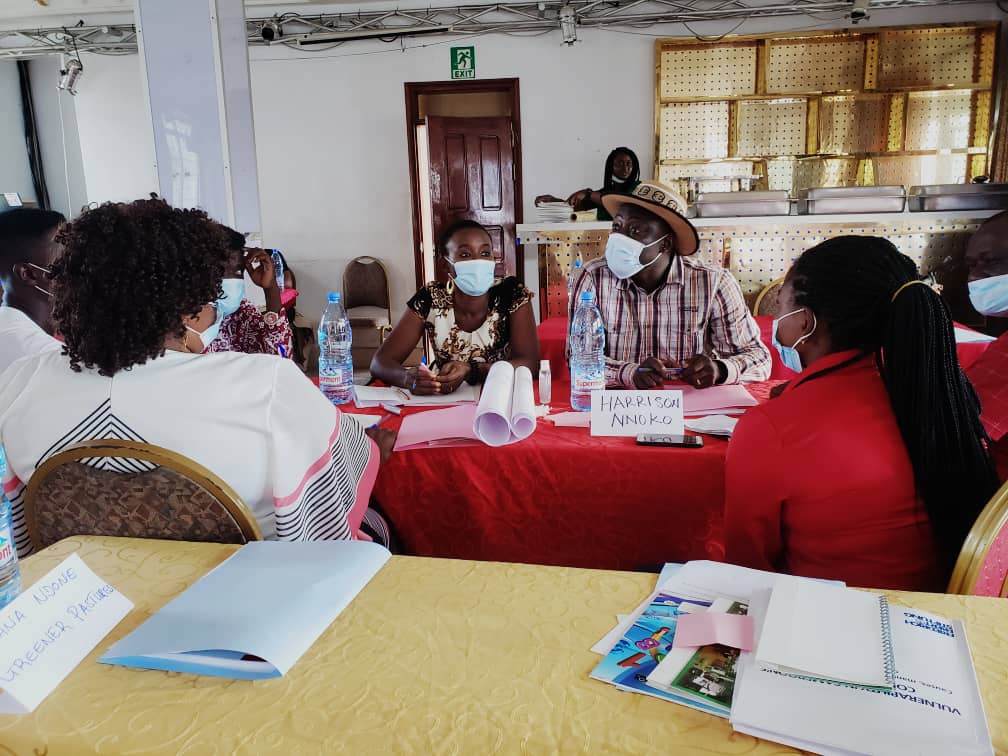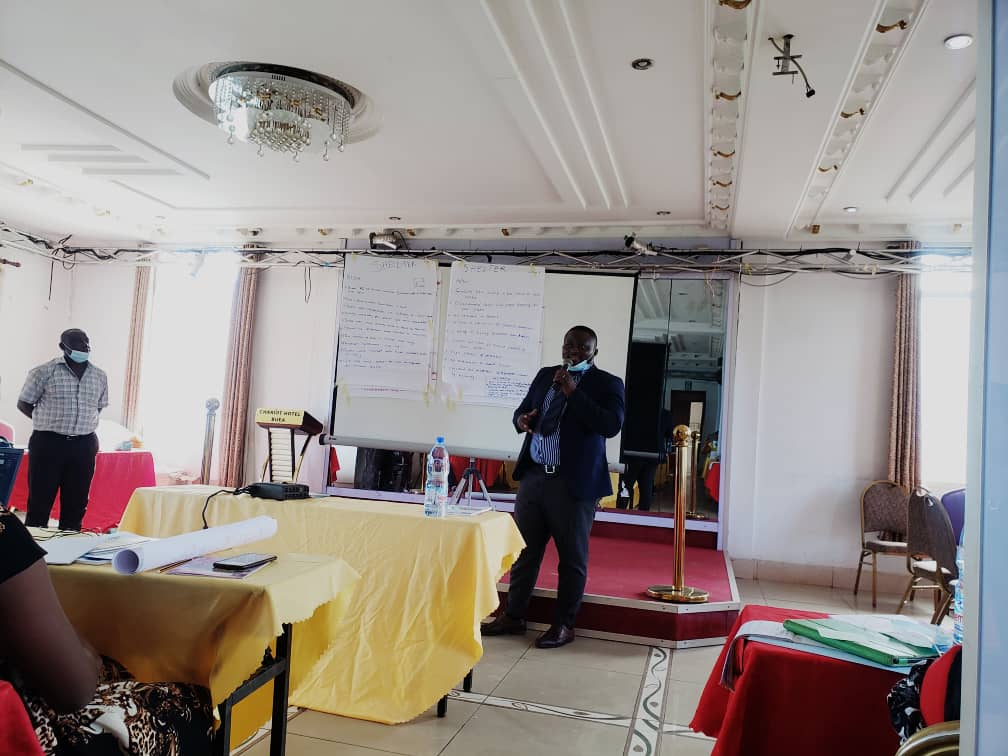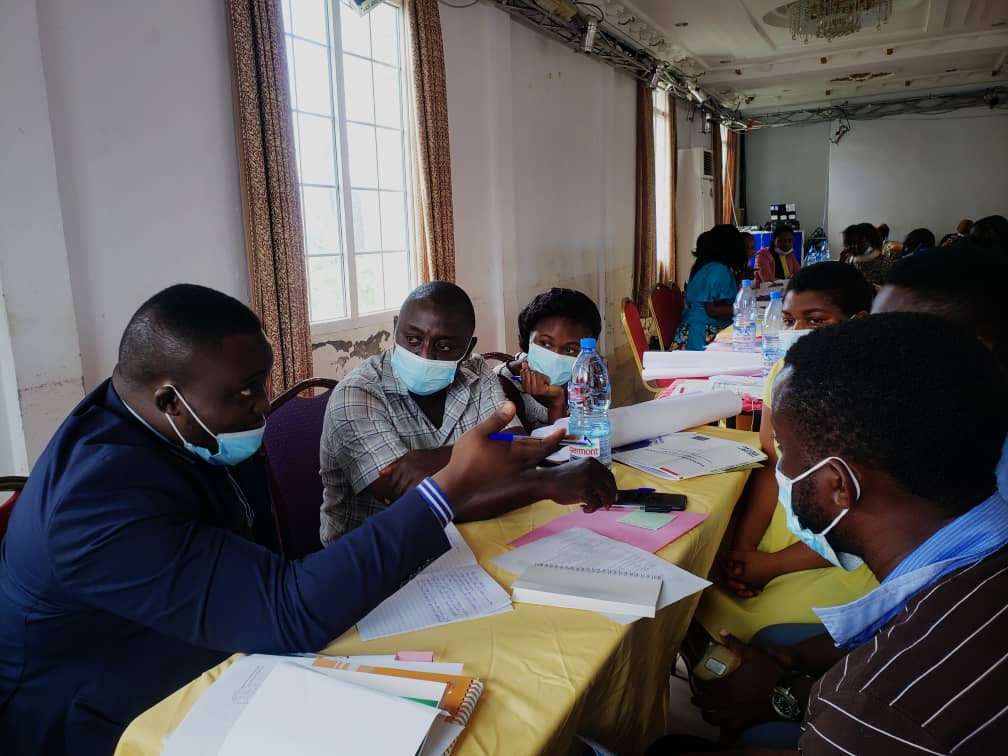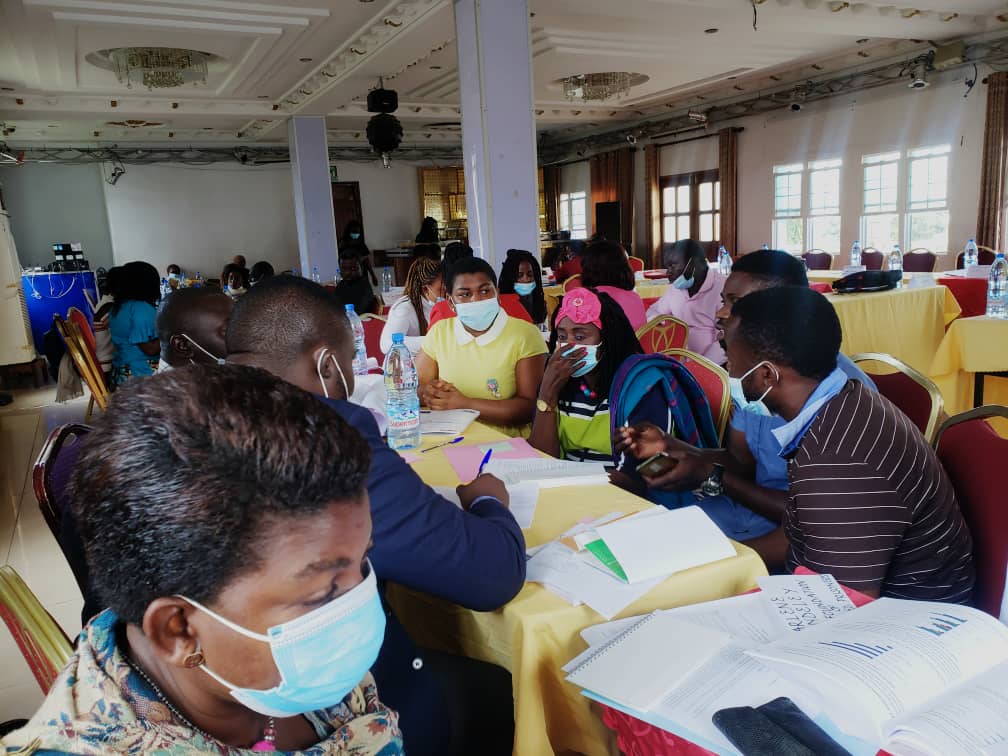Vulnerable Groups Caught In Cameroon’s Socio-Political Crisis- Reach Out

By Nadesh E
According to a study carried out by a German political Party Foundation, Friedrich Ebert Stiftung, and women and youth-centered NGO, Reach Out Cameroon, the ongoing socio-political crisis in Cameroon has a catastrophic impact on vulnerable groups in the North West, South West and Northern regions of Cameroon.
The study shows that the crisis has negatively affected the security, basic social services, basic needs, Jobs and income-generating activities, respect for fundamental human rights, social protection systems, and rights to the sexual and reproductive health of vulnerable groups like children, young girls, youths, the elderly, people living with disabilities, small traders and workers in the informal sector, people with impairment and agricultural workers in these crisis-hit regions.
The study which began in March 2020 reports most of the negative effects are a result of:
- Disruption of social services, education and health in particular
- Restriction on the movement of goods
- Abuses by armed groups
- Restrictions on the movement on people
- Disruption of production activities
- And disruption of security or legal services
In a 113 paged-book titled “Vulnerability in Cameroon’s Conflict Regions; Causes, Manifestations, and Consequences on the Population,” Reach Out Cameroon (the implementing partners) and co-financers of the “Security for All” present verified and first-hand effects of the conflict situation in Cameroon on vulnerable groups.
This was under scrutiny during a one-day workshop in Buea on October 27, 2021, organized by Reach Out Cameroon on behalf of the Friedrich Ebert Foundation and the EU. The project and its findings were presented to actors from different humanitarian organizations, NGOs, and CSOs in the South West Region who are playing an active role to aid vulnerable groups through the crisis.
According to the Assistant Programs Director of Reach Out Cameroon, Pride Yanu, the restitution workshop was to disseminate findings from a study carried out by the Friedrich Ebert Foundation with support from the European Union in the North West, South West and Far North Regions. He added that the workshop was focused on findings of the South West Region and that was why only actors within the region were invited.
“The purpose of the study was to get more and concrete information on the actual vulnerabilities directly on those on the ground. It was more to get real-time data that will inform us on the various vulnerabilities, those who are most affected by the crisis and how the crisis has affected them in the various domains,” Yanu told CNA.
As explained by the facilitators during the workshop, the purpose of sharing the findings with other NGOs and CSOs is for them to confirm if the findings match with what they see on the field and for them to tailor their programs towards the needs of the vulnerable groups identified in the study.
Some of the participants have confessed to having been very helpful to them. They confirmed that the report has given them more material on the actual figures on the ground and will help them in restructuring their programs. Vanesa Shalom from Just Like You Foundation says the workshop and the book have served as an eye-opener to her because she was unaware of some of the things that were happening in some of the crisis-hit regions which she discovered in the report. “After getting these statistics, I will have to discuss with my organization and see how we can channel our resources and efforts to the most hit groups. Moreover, seeing how others are so motivated towards doing humanitarian work, has boosted my dedication towards the work,” she added.
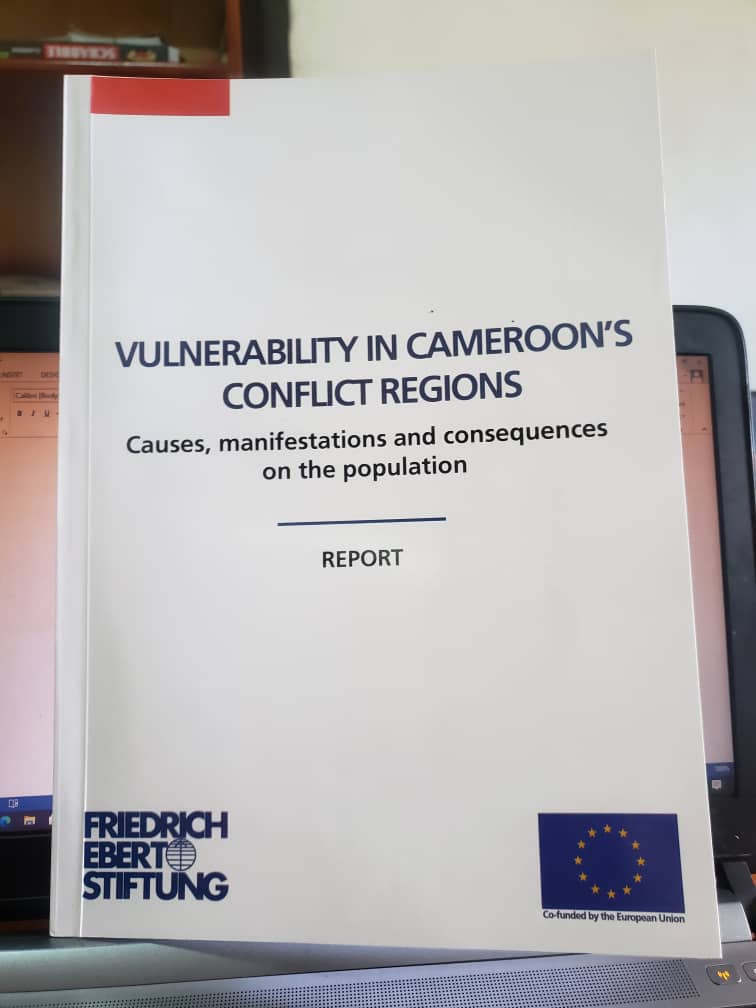
Reach Out Cameroon and its partners (Friedrich Ebert Foundation and the European Union) are aiming to use the document as a reference point for other organizations to pick out focal areas and put more energy on them.
The group exercise at the session also gave participants the opportunity to share ideas and learn from each other’s experiences. From their interactions, comparisons were done between the time of the study and the present and one of the results proved socio-economic activities and goods are getting expensive and a litre of palm oil is not sold at 900frs as opposed to 600frs before.
From the target audience distribution, a total of 791 respondents took part in the study North West (240), South West (288), and Far North (263). The sample population included Enterprises, youths, displaced persons, the General population, disabled and seriously sick persons, the elderly, and children. In the South West region, divisions like Fako, Manyu, Kupe Muanenguba, Meme, and Ndian were covered.
About Reach Out Cameroon
Reach Out Cameroon is a youth and women-focused Non-governmental Organization in Cameroon serving under-served populations in the areas of peacebuilding, Human Rights, Health, Governance. Created in 2000, the organization functions under three departments on Health, Human Rights and Governance, and Wealth Creation. Read more about the organization via http://www.reachoutcameroon.org
You can also connect with them on Facebook via https://www.facebook.com/Reach.Out.SW/
The Friedrich Ebert Foundation (Friedrich-Ebert-Stiftung e.V.; Abbreviated as FES) is a German political party foundation associated with the Social Democratic Party of Germany (SPD) yet independent of it. Established in 1925 as the political legacy of Friedrich Ebert, Germany’s first democratically elected President, it is the largest and oldest of the German party-associated foundations.
The work of the Friedrich-Ebert-Stiftung (FES) seeks to strengthen reform-oriented societal and political forces from political parties, trade unions, and civil society and in particular, including women and young people as well in order to improve democratic participation in decision-making processes in Cameroon.

